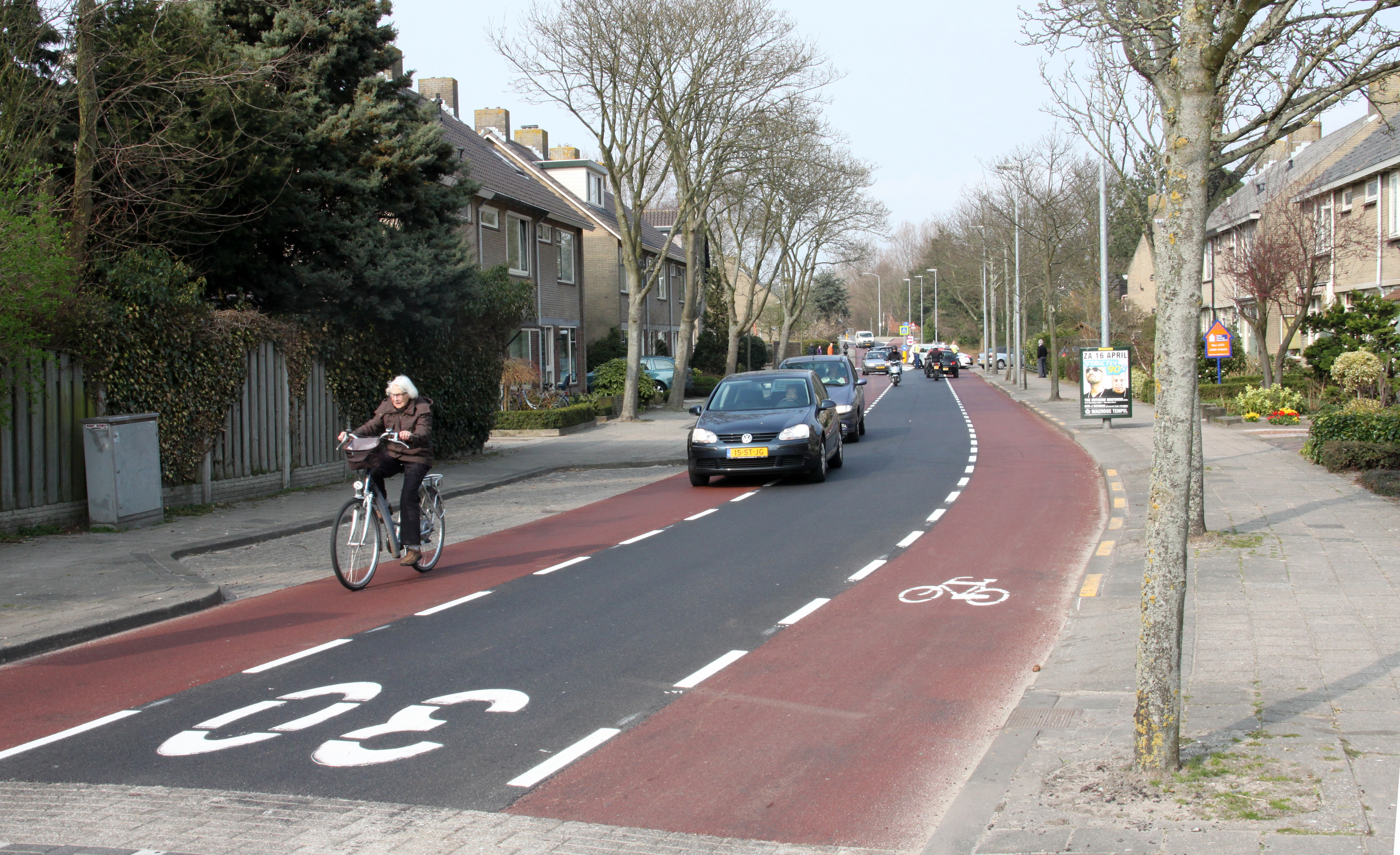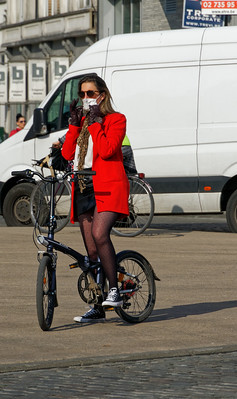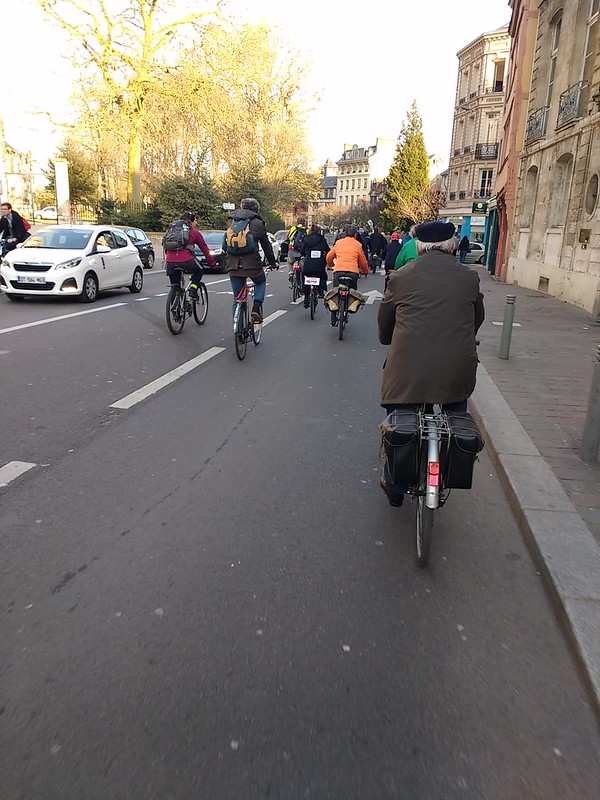
Move Aside Cars! New Speed Limits For Covid-19 Crisis
Author: Maya Watson
From Brussels to Budapest, cities are instituting measures to help active travelers keep their social distance while staying safe from cars. In this new mini-series we look at how cities around the world are reclaiming the streets to keep essential workers and residents healthy and safe. Part 1 takes a quick look at the calls for new speed limits popping up around Europe.
 It is more vital than ever to make active transport safe. As hospitals across Europe reach capacity, road accidents take up urgently needed treatment space. However, sidewalks and bike lanes can no longer contain swelling numbers of pedestrians and cyclists. Active residents are putting themselves at risk: spilling onto the streets to comply with social distancing regulations. To compound the issue, decreased car-traffic lends a false sense of security. While less mobility means fewer accidents, countries are reporting increased levels of speeding, putting pedestrians and cyclists at risk.
It is more vital than ever to make active transport safe. As hospitals across Europe reach capacity, road accidents take up urgently needed treatment space. However, sidewalks and bike lanes can no longer contain swelling numbers of pedestrians and cyclists. Active residents are putting themselves at risk: spilling onto the streets to comply with social distancing regulations. To compound the issue, decreased car-traffic lends a false sense of security. While less mobility means fewer accidents, countries are reporting increased levels of speeding, putting pedestrians and cyclists at risk.
Speed Limits
On March 27, the Isle of Man was one of the first places to impose new temporary speed limits. Around the island speeds limits have been reduced from 60-50mph to 40mph. Chief Minister Howard Quayle hopes this new measure will help limit the stress on hospital beds and make space for COVID-19 patients.
Road safety campaigners in Ireland are also calling for new speed limits after several tragic road-accident deaths. The Irish Mirror reported Professor John Crown, consultant oncologist at St Vincent’s Hospital, saying: "We are all concerned by reports countrywide of people driving faster. Though our roads are emptier, six people died in road traffic collisions last week and road deaths are up by a quarter for 2020".
In Poland, a group of experts and scientists sent a letter to their health and infrastructure ministers calling for lower speed limits. Depending on the road in question (highway, residential, etc.), the experts recommend reducing speed limits by 10 to 20 km/hour.
On Tuesday, April 21, speed limits in Brussels were reduced to 20 km/hour in all streets inside the inner ring road. Elke Van den Brandt, the Minister of Mobility, Public Works and Road Safety in Brussels, cautions:
“Our hospitals don’t need to treat traffic victims at the moment. Respecting speed limits is also a way of showing solidarity”.
 England is also seeing speed limits reductions. In south Shropshire the Green Party is calling on the UK minister for roads, Baroness Vere of Norbiton, to lower 30mph speed limits to 20mph nationally. The London borough Haringey has set a borough-wide 20mph speed limit. And, a coalition of UK doctors is also advocating for “an immediate reduction in motor vehicle speed limits”.
England is also seeing speed limits reductions. In south Shropshire the Green Party is calling on the UK minister for roads, Baroness Vere of Norbiton, to lower 30mph speed limits to 20mph nationally. The London borough Haringey has set a borough-wide 20mph speed limit. And, a coalition of UK doctors is also advocating for “an immediate reduction in motor vehicle speed limits”.
Among other cycling initiatives, Milan’s new Strade Aperte plan, announced on Tuesday, April 21, includes 30km/hour speed limits. Marco Granelli, a deputy mayor of Milan, told the Guardian:
“We worked for years to reduce car use. If everybody drives a car, there is no space for people, there is no space to move, there is no space for commercial activities outside the shops. Of course, we want to reopen the economy, but we think we should do it on a different basis from before.”
What Next?
In this crisis, lowering speed limits will help save lives on roads and in hospitals. But what about after the crisis? Will governments across Europe let the safe speed limits revert to “normal”?
As it currently stands, the World Health Organization (WHO) reports that almost 1.35 million people around the world die from road accidents each year and 20-50 million are grievously injured. A collision between a pedestrian and a motor vehicle at 30 km/h has a similar impact to falling from a first-floor window. A collision at 50 km/h can be compared to falling from the third-floor window of a building. It is clear: “normal” speed limits put people in danger.
It is vital that these lower speed limits remain. As Dr. Al Sommer, Dean Emeritus at Johns Hopkins Bloomberg School of Public Health, said back in 2017:
“We have the cure for unsafe roads—low speeds. It is time we administer it."
Regions:
Contact the author
Recent news!
Upcoming events
Contact Us
Avenue des Arts, 7-8
Postal address: Rue de la Charité, 22
1210 Brussels, Belgium









